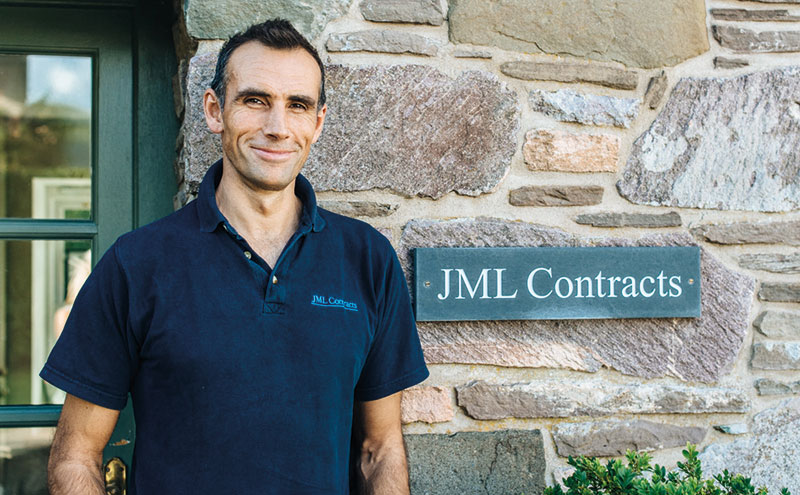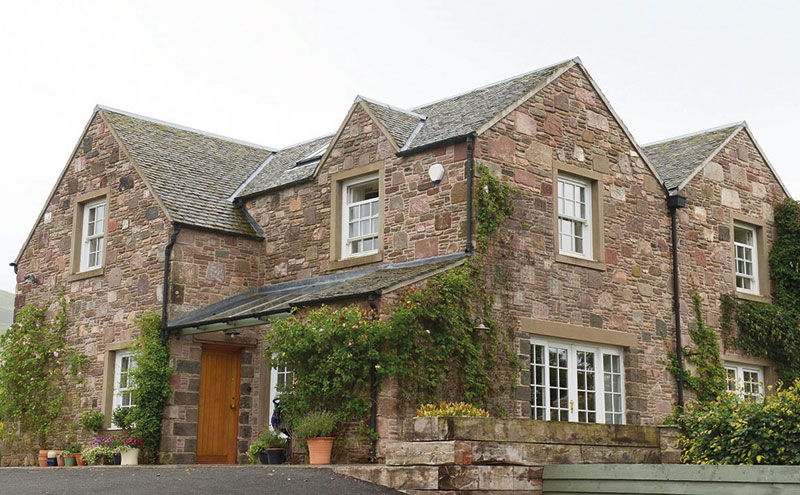
AN Auchterarder-based construction firm believes the nation’s housebuilders should look to modern construction methods to help meet the Scottish Government’s plans to deliver 50,000 affordable homes by 2021.
John Langley is director of building and civil engineering business, JML Contracts, which specialises in Structural Insulated Panels (SIPs).
He believes SIPs should be at the forefront of the future of housebuilding, with aspirations for higher quality, energy efficient homes driving the sector towards new technologies.
The panels are described as a high-performance, environmentally friendly building system suited to new builds.
SIPs are formed with a high thermal performance rigid Polyurethane core of insulation between two outer skins of oriented strand board.
The benefits of using SIPs are said to include design flexibility, speed of build, structural strength and enhanced air tightness and ventilation.
John told Project Scotland he’s pleased there seems to be a drive towards higher quality, energy efficient affordable homes. “That’s what our system is,” he explained. “We cannot compete with the bog standard, off-the-shelf lower quality homes. If the Government is looking at affordable housing being of higher quality, that suits us as it moves the specification more towards what we offer.
“With SIPs, you’ve got flexibility in your design. For any large spaces or tricky designs, SIPs have their own inherent strength. We normally engineer out as much steel as possible depending on how complex he design is.”

John also emphasised the importance of being able to do the bulk of construction in a factory, bringing obvious advantages like shorter build times. He hopes that looking beyond more traditional construction methods will bring Scotland more in line with some of our European counterparts.
“I always look at countries like Austria and Germany,” he added. “If there was a housebuilding Olympics, we’re not on the top table or even the second page. These European countries tend to be well ahead of us. Development in our construction industry tends to move at such a glacial pace.
“I recently attended the opening of the new Construction Scotland Innovation Centre. As part of this, there was a talk by Andrew Wolstenholme, chief executive of Crossrail and vice president of the Institute of Civil Engineers, who showed a quote, which went something like ‘We must embrace technology in the construction industry in the UK’. We all nodded in agreement and he clicked a button to reveal the quote was from the early half of the twentieth century! It’s that age old thing where we keep talking about it but (the industry) moves at such a slow pace.”
John admitted to a “slight concern” that the Scottish Government’s ambitious target risks lower quality houses being rushed out to satisfy the objective. He also queried whether the planning system would be able to cope.
John commented, “It’s all very well building 50,000 homes as long as they’re the right quality. What you don’t want to do is spit out a whole load of homes, hit the target, pat each other on the back, and in ten years time discover that they all need re-done.
“I would like the Government to really insist on quality and energy efficiency. I know it’s a difficult balance because you want to get the houses built but I would look to get the best quality they can and future-proof the homes – not just tick a box to say the houses have been built.
“That’s the way the industry should be going and I think it is making a return towards a better, more energy efficient housing stock and hopefully SIPs can help towards that.”








